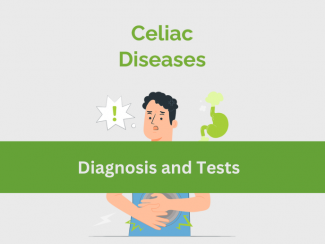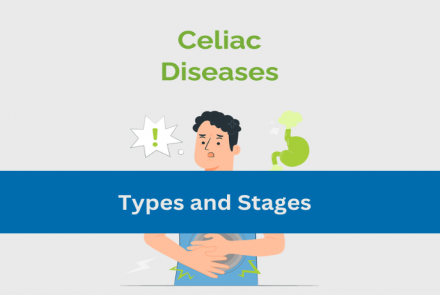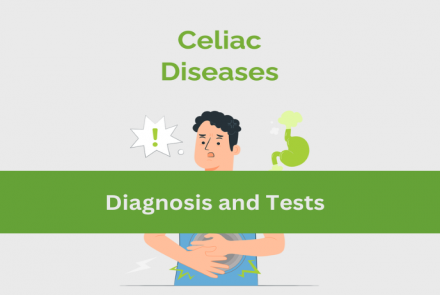Also known as celiac sprue or gluten sensitive enteropathy. This is a digestive and autoimmune disorder that causes damage to the lining of the small intestine when foods with gluten are eaten.
About 1 in 100 people suffer from this condition.

Consultation of gastroenterologist and dietitian is important for diagnosing and managing this disease. In order to diagnose the condition, the doctor may suggest some of the following:
- Physical examination and review of medical history.
- Blood tests– To measure levels of antibodies and to detect nutritional deficiencies (iron levels). Antibodies such as immunoglobulin A (IgA) anti tissue transglutaminase (tTG) antibodies, IgA anti endomysial antibodies (EMA) and IgA anti deamidated gliadin peptide (DGP) IgG antibodies.
- In case of certain conditions like chronic liver disease, heart failure and enteric infection due to cross reactions between antibodies there are chances of false positive results. For that patients have to consume gluten containing diet, >3gm gluten/ day for at least 2 weeks before the test.
- Stool sample – To detect fat in stool, since this disease prevents fat from being absorbed from food. The fat is excreted from the body.
- Biopsy - Endoscopy with small intestinal biopsy is done for confirmatory diagnosis of celiac disease. Tissue will be taken from the small intestine to check for damage to the villi. The doctor inserts an endoscope through the mouth and in to the small intestine under mild sedation and takes a sample of the small intestine with an instrument to be examined under a microscope.
- Genetic testing – It is recommended when you have family history and these tests are not influenced based on your gluten consumption.
- Additional testing to check nutritional status is also done, including vitamin A, vitamin B12, Vitamin D, Vitamin E, Haemoglobin and liver enzymes.
- In older age individuals, bone density scan is also advised to check for osteoporosis.
Community
Condition

















